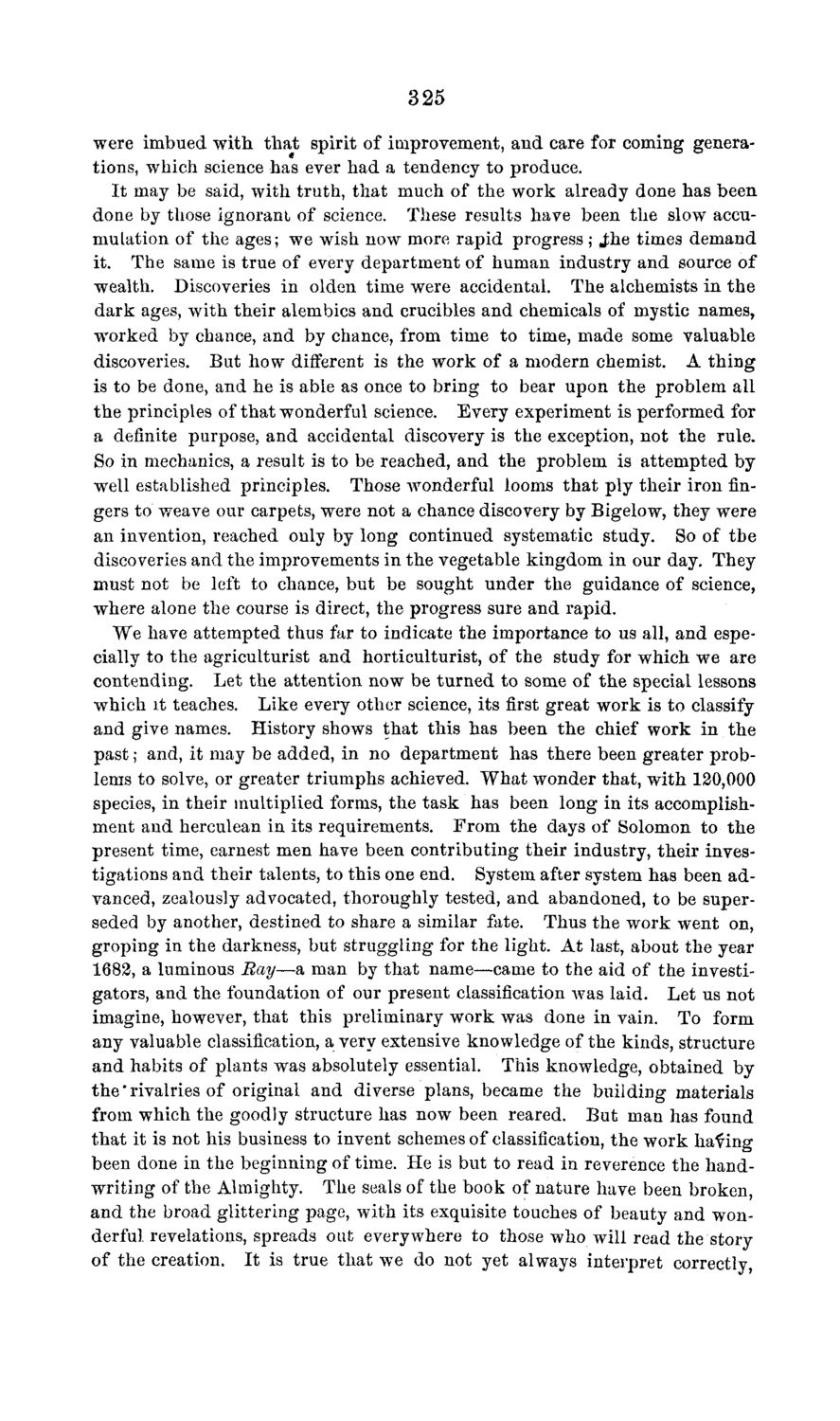| |
| |
Caption: Board of Trustees Minutes - 1869
This is a reduced-resolution page image for fast online browsing.

EXTRACTED TEXT FROM PAGE:
325 were imbued with that spirit of improvement, and care for coming generations, which science has ever had a tendency to produce. It may be said, with truth, that much of the work already done has been done by those ignorant of science. These results have been the slow accumulation of the ages; we wish now more rapid progress ; J;he times demand it. The same is true of every department of human industry and source of wealth. Discoveries in olden time were accidental. The alchemists in the dark ages, with their alembics and crucibles and chemicals of mystic names, worked by chance, and by chance, from time to time, made some valuable discoveries. But how different is the work of a modern chemist. A thing is to be done, and he is able as once to bring to bear upon the problem all the principles of that wonderful science. Every experiment is performed for a definite purpose, and accidental discovery is the exception, not the rule. So in mechanics, a result is to be reached, and the problem is attempted by well established principles. Those wonderful looms that ply their iron fingers to weave our carpets, were not a chance discovery by Bigelow, they were an invention, reached only by long continued systematic study. So of the discoveries and the improvements in the vegetable kingdom in our day. They must not be left to chance, but be sought under the guidance of science, where alone the course is direct, the progress sure and rapid. We have attempted thus far to indicate the importance to us all, and especially to the agriculturist and horticulturist, of the study for which we are contending. Let the attention now be turned to some of the special lessons which it teaches. Like every other science, its first great work is to classify and give names. History shows that this has been the chief work in the past; and, it may be added, in no department has there been greater problems to solve, or greater triumphs achieved. What wonder that, with 120,000 species, in their multiplied forms, the task has been long in its accomplishment and herculean in its requirements. From the days of Solomon to the present time, earnest men have been contributing their industry, their investigations and their talents, to this one end. System after system has been advanced, zealously advocated, thoroughly tested, and abandoned, to be superseded by another, destined to share a similar fate. Thus the work went on, groping in the darkness, but struggling for the light. At last, about the year 1682, a luminous Bay—a man by that name—came to the aid of the investigators, and the foundation of our present classification was laid. Let us not imagine, however, that this preliminary work was done in vain. To form any valuable classification, a very extensive knowledge of the kinds, structure and habits of plants was absolutely essential. This knowledge, obtained by the * rivalries of original and diverse plans, became the building materials from which the goodly structure has now been reared. But man has found that it is not his business to invent schemes of classification, the work haf ing been done in the beginning of time. He is but to read in reverence the handwriting of the Almighty. The seals of the book of nature have been broken, and the broad glittering page, with its exquisite touches of beauty and wonderful revelations, spreads out everywhere to those who will read the story of the creation. It is true that we do not yet always interpret correctly,
| |